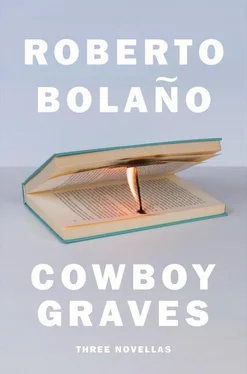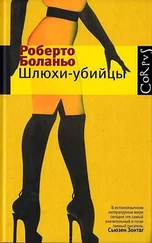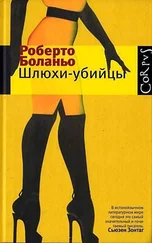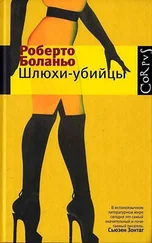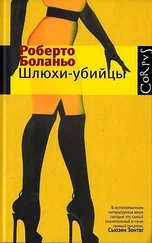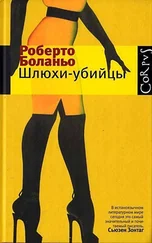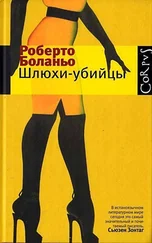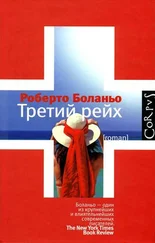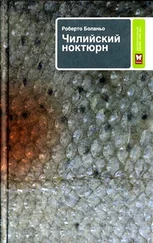I live alone, she said. My mother and father live in Santiago. They love each other desperately, she said with a smile. I live with Crescencia. She’s here now, somewhere in the house, listening to the radio. She must be in bed listening to the military speeches. But she’ll get up soon and make us something to eat. Do you know the names of the seven volcanoes of Bío-Bío? Copahue, Tolhuaca, Collapén, Pemehue, Sierra Velluda, Maya-Maya, and Antuco, the most beautiful of all. Why are you closing your eyes? I was imagining the volcanoes, I said. I saw them as walls closing us in. Because of the coup? Don’t see them that way, said the sweet voice.
They felt like bars to my father too, bars to his talent, which is maybe why he went to live in Santiago. The artist who could only see the right side of things, is he still alive? No, he died a long time ago, in New York, in the 1930s, before World War II. His name was Richard Luciano and his drawings still turn up in neuropathology papers sometimes. How sad to end up in a medical journal! I said with my eyes full of tears. Not really, said the sweet voice. Better there than in a museum. Life takes many turns, Mr. Belano, the adventure never ends…
Which Way Was Patricia Arancibia Driving That Morning? Toward Heaven or Hell?
The spotless Volkswagen glided along the roads of Bío-Bío as if along a conveyor belt. It braked and accelerated at nudges from the sun, the warm rays on the leopard skin. And Patricia Arancibia, with no sunglasses to shade her eyes, surveyed the roads and chose the best. Down tree-lined streets or oxen tracks, along the edge of fields, past Coigüe or Santa Fe, at the hour of the lazy man’s call to morning prayer, her slender legs moving confidently in the belly of the leopard, setting the desired speed. She was wearing black leather boots with silver buckles, magenta cotton socks sprinkled with tiny stars, a high-waisted black knee-length skirt—tight as if for horse-riding—a brown silk blouse with round pearly buttons, and, carelessly tossed in the back seat, a 1950s starlet’s kid-leather jacket. Every so often she stopped the car in a cloud of dust and consulted a map that she pulled from the glove compartment. The scene was like an advertisement for a savage perfume: her long fingers tracing the roads printed in red, her lips pressed firmly together. Then the car slowly emerged from the cloud of dust as if from an egg. An egg of stone, of light and air, ephemeral as a fly. Volcano egg. And the spotless Volkswagen gradually picked up speed again. Left behind was the shell, crumbling among the tree branches. The map was returned to the glove compartment. Her hands clutched the wheel and the car set off again.
“Where are we going?” I asked in a frightened voice.
(When I was a boy, my siblings and I played a game of turning happy moments into statues… If only someone, an angel watching from up above, had turned the Volkswagen and the bumps in the road into a statue… The leopard-skin throne into a statue… Our speed and our flight into a statue…)
She accelerated unhesitatingly. Don’t worry, Mr. Belano, she said mockingly, we won’t get lost… We won’t lose anything… Her lips, as Virgil’s Argentine or Bolivian translator would have it, were full of ambrosia.
From Eliseo Arancibia to Rigoberto Belano
I’ve received four letters from you and I’d say that’s enough. Don’t grub around in my family’s suffering. Don’t sully my daughter’s memory with conjectures and speculations that lead nowhere. Please, desist. The facts are clear and I don’t see why I should believe you and your suspicions over the police report. It was God’s will that my daughter be taken from us in the flower of her youth, and that, unfortunately, is that.
As for sending you Patricia’s papers, my answer is no. I don’t know what papers you’re referring to. And if I knew, I’m afraid you wouldn’t be the likely recipient. When time has done its healing work, I’ll be able to calmly and patiently collect my daughter’s scattered writings and publish them in worthy fashion. I have plenty of editor friends. I beg you, therefore, not to appoint yourself literary executor when no one has asked you to do so.
Finally: don’t exploit my daughter’s disappearance. Not politically, and not literarily. On this point, I find myself obliged to insist. You have no right. Patricia despised the commonness that I sense in your intentions. I don’t need to tell you that if it comes down to it, I won’t hesitate to take legal steps.
If my words are harsh, I’m sorry. Please understand, I’m a heartbroken father. You, on the other hand, are a young man and you ought to think of your future.
I enclose our magazine Chilean Painters Here and Abroad , with a profile of Onésimo Echaurren that you may enjoy.
Funeral Oration Read by the Interim Secretary of the Chilean Society of Fine Arts, the Honorable Mr. Onésimo Echaurren Gordon. Published in the Quarterly Journal Chilean Painters Here and Abroad, 1974, and Excerpted in the Obituaries Section of El Mercurio, 1973. Unabridged.
We are gathered here, friends and colleagues, in tribute to a fragile rose, to the still-fresh petals of the loveliest of flowers, the lushest and most enigmatic of flowers, torn too soon from the breast of Nature: mother of us all, the blind and the sighted, the creators and the creatures of the night, the artist who sees and transcends, and that hideous Afro-Haitian spawn, the zombie.
Just when it seemed that the terrible drought was lifting, when the clamor of vulturine flocks seeking to clip the wings of our beloved condor was vanishing like a bad dream from the Nation’s frozen breast, when Andean deer were frolicking once again in reclaimed valleys, and when the tolling of bells announced to young and old that the Republic was forging ahead with new vigor and verve, the news reached our homes like the night’s final blow, tragic news plunging us without warning into a private tempest.
I can say that I was there at her birth; friendship, that sacred, mysterious bond, afforded me the happy privilege of watching her grow up. How can I help but call to mind her little face as it looked in the light of my four copper lamps (they were more like torches), begging me to tell her yet another story, one more in a long list. Unforgettable evenings, wreathed in the magnificent light of the province of Temuco, at La Refalosa, my country estate, the name of which does not harbor a grammatical error, as some of my enemies have insinuated, but rather the pure folk wisdom of my elders, which I’m honored to preserve.
As if time, forgetful friend, hadn’t wagged its comet tail, I seem to see onstage before me the spacious veranda at La Refalosa, with easels at the ready, palettes prepared, paints set out; beyond is the garden, and at the edge of the garden, the children, playing cowboys (children who today are students of Law or Economics!); the countryfolk, humbly attired but generally clean and of cheerful mien, are on their way to the tilled fields; and here she comes, our precocious eight-year-old Amazon, Venus of Botticelli, Max Ernst’s magical woman-child, Alberto Ortega Basauri’s sulky divine thing, riding my mare Dusty through the roses.
Blessed vision! Her winged presence produced something akin to astonishment, of the sort usually elicited only by poems, whether on canvas or on the page. Abstracted traveler of imaginary lands, from the very start she dazzled her dear parents and the select circle to which they belonged with her intellect and beauty. I can say without hesitation that it was from Eliseo Arancibia that she inherited her open, unwavering intelligence, and from Elena Múgica Echevarría the beauty and grace that were hers until the final dusk.
Читать дальше
